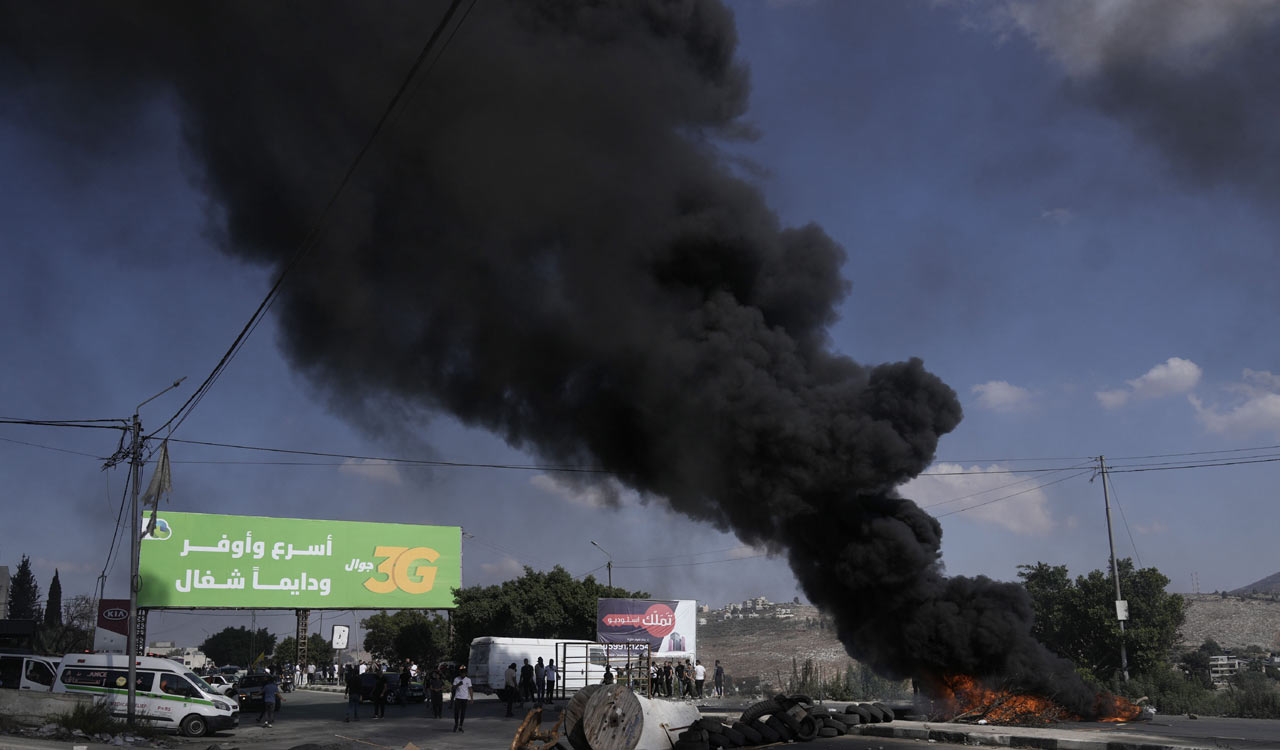The Israel-Hamas war could impact India’s ambitions of playing a bigger role in global trade
Published Date – 11:45 PM, Fri – 13 October 23

(AP/PTI Photo)
A nuanced position on the ongoing Israel-Hamas war, articulated by the External Affairs Ministry, reflects India’s tightrope walking on an issue that is bound to have an impact on its trade and economic interests. In its first official statement on the conflict, the Ministry of External Affairs opted for a balanced approach; condemning the terror strike on one hand and, on the other, advocating resumption of direct negotiations towards establishing a ‘sovereign, independent and viable State of Palestine’ living within secure and recognised borders, side by side at peace with Israel. By calling for global efforts to fight the menace of terrorism in all its forms and manifestations, New Delhi has sent out a strong signal of support to Israel. At the same time, it has reiterated the long-held stand in favour of a negotiated settlement wherein both Palestine and Israel can peacefully coexist with dignity. India’s emphasis on the “universal obligation to observe international humanitarian law” is apparently aimed at Tel Aviv which is carrying out massive aerial strikes in Gaza. Any further deterioration in the war situation would harm India’s interests, particularly in the crude oil-dependent sectors. India relies heavily on crude oil, and any price increase could exacerbate inflation fears. Nearly 60% of India’s crude oil demand is met by the Middle East region. An uncertain Middle East could cause supply interruptions, driving up global oil costs. Oil price increases can exacerbate the country’s current account deficit, putting downward pressure. Moreover, Israel is India’s third-largest trading partner in Asia and tenth globally.
Bilateral trade covers a wide range of sectors including communication technology, artificial intelligence, telecommunication, agriculture and water management. The increasing commercial partnership, worth around $5 billion, includes a variety of industries. Disruptions in this trade as a result of geopolitical uncertainty can have an impact on firms on both sides. At a broader level, the Israel-Hamas war could impact India’s ambitions of playing a bigger role in global trade. The recently announced India-Middle East-Europe Economic Corridor (IMEEC) may also be affected by the conflict, leading to concerns in the markets. Oil prices have already started soaring, and Indian stocks have tumbled due to worries about the fallout of the conflict. Similarly, the efforts aimed at normalising the diplomatic ties between Israel and the Arab world would come to a nought. In fact, these peace efforts triggered a sense of desperation among the Hamas leadership. The barbaric attacks on Israeli citizens were probably aimed at derailing an imminent Israeli-Saudi agreement. Following Israel’s withdrawal from the Gaza Strip in 2005, and particularly after Hamas took control of the strip by defeating Fatah, its political rival in the 2006 elections, there were frequent outbreaks of violence, which resulted in casualties on both sides. Hamas also developed expertise in digging sophisticated military tunnels, which have become important conduits for cross-border infiltration.





